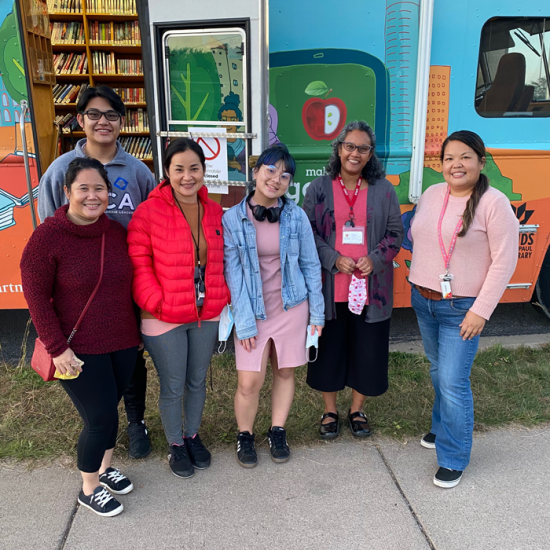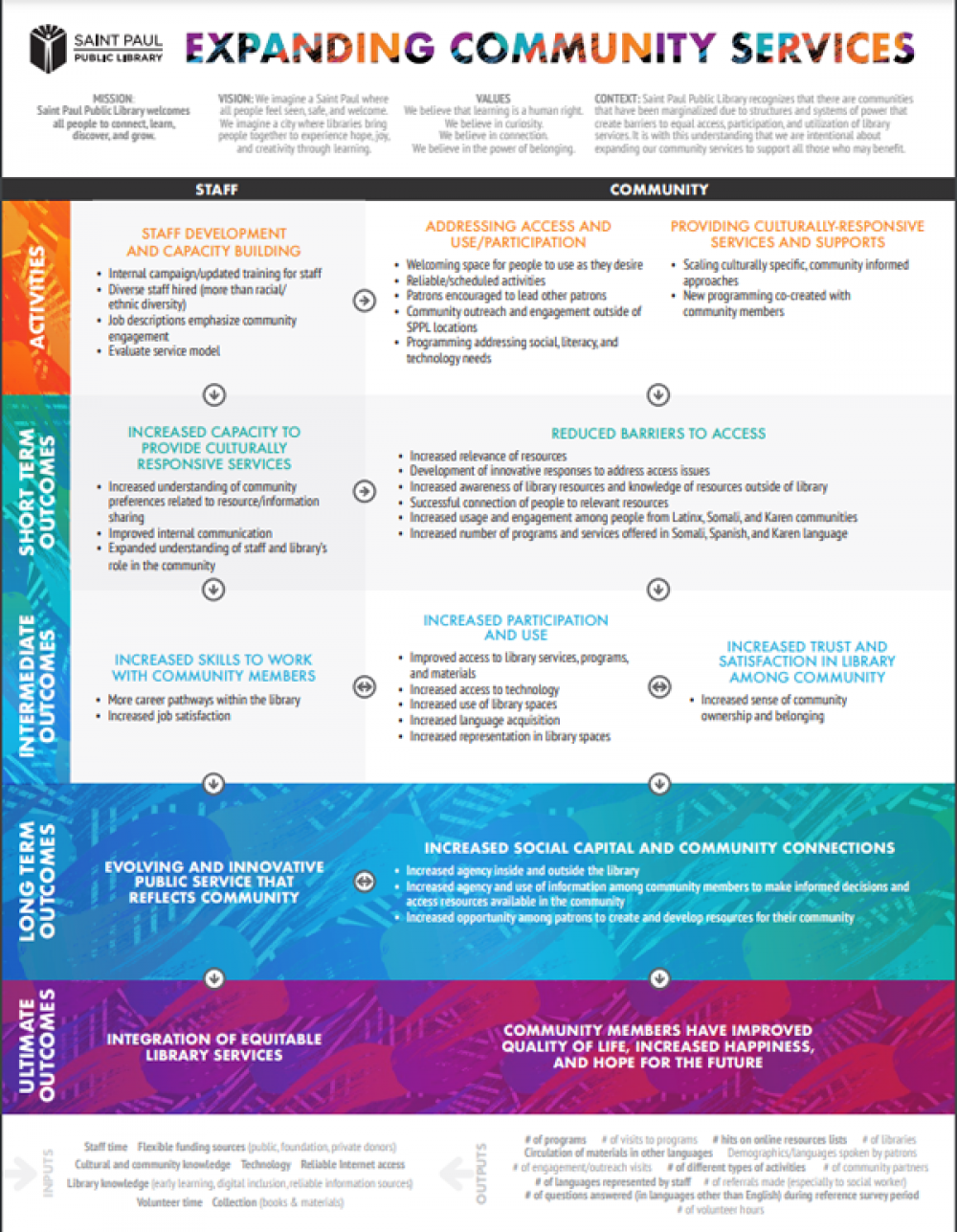Saint Paul Public Library Uses Evaluation to Expand Community Services
Public libraries across the country strive to offer services, programming and operations that meet the needs, desires and interests of diverse communities. Saint Paul Public Library’s Community Services program focuses on culturally responsive and informed programs, resources and services to support some of the most marginalized community members in the Twin Cities—immigrants and refugees—and to address inequities in library services.
Expanding these services is central to the Library’s mission to welcome all people to connect, learn, discover and grow.
After years of building the Community Services program, Saint Paul Public Library (SPPL) staff knew it had a strong foundation on which to build and wanted to tie the program to the Library’s strategic plan. Rebecca Ryan, Public Services Manager at SPPL, approached Wilder Research to help evaluate the program.
Cultural liaisons connect the library and Karen, Latinx and Somali communities in Saint Paul
Central to SPPL’s Community Services model are hiring cultural liaisons and expanding professional development of library staff. Cultural liaisons are staff with community engagement and public services expertise who identify with and speak the native language of a cultural community. So far, the library has Karen, Latinx and Somali cultural liaisons who are crucial to connecting, building trusting relationships and more thoroughly understanding the scope of need for resources, tools and support within these distinct cultural groups. The liaisons work across several library branches and provide a range of programming and services based on interest and need. Examples of these activities include community conversations, virtual programming like story time and computer classes.
Community Services Coordinator Phasoua Vang describes the liaisons as responsive to community needs: “They are flexible, adaptable and resilient. Staff were always very mobile. They were at community sites and library branches. When things shifted with the pandemic, and library buildings closed, they continued to serve the patrons and families they worked with so well and with so much trust.”

